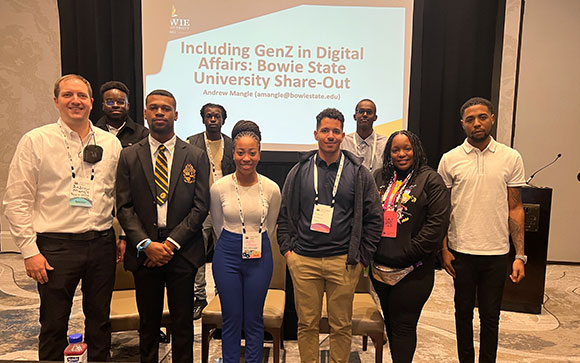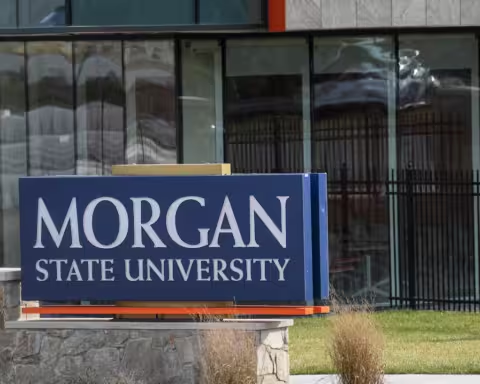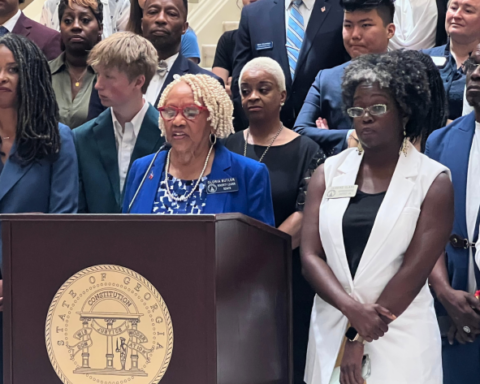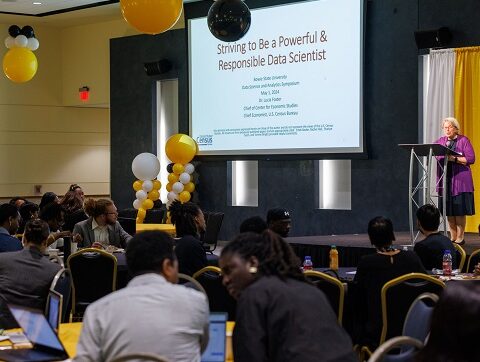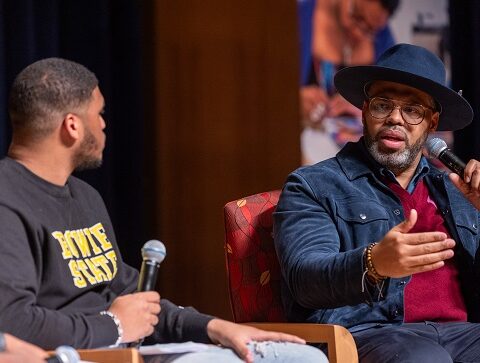Courtesy of Bowie State University
BSU students with a desire to learn more about open payment systems and financial inclusion spent two days in New Orleans attending the Interledger Foundation’s Summit where researchers, corporate executives and others met to discuss how the systems will enable anyone, anywhere in the world to digitally transfer funds to purchase goods and services.
“Interledger’s Summit brought together experts and practitioners from the world of blockchain and financial technology (fintech), and provided my students with a snapshot of real-world open payment system challenges and opportunities,” said Dr. Andrew Mangle, assistant professor of management information systems in the College of Business at Bowie State.
Students attended various panel discussions and workshops at the summit and expressed a better understanding of open payment systems and how the technology can help approximately 2.5 billion unbanked people worldwide. Providing financial services to the unbanked could boost economic growth and help reduce the poverty they experience.
“I see the possibilities of Blockchain and have a much better understanding of digital finance, Web 3.0, and open payment systems,” said David Velasquez, a senior business information systems major. “Other nations without strong banking systems rely on open payment systems to transact business. With family members in Venezuela, I understand firsthand the drawbacks of the unbanked and see the advantages that an open payment system will provide people.”
Dr. Mangle provided a presentation about SWIFT, Western Union, Paypal, Zelle, cryptocurrency and other services available to exchange funds over the web. Some of the options can be problematic for the unbanked due to bank account, internet, technology, or other requirements. But that does not deter Jayda Motley, a senior majoring in human resource management from Upper Marlboro, Maryland and an aspiring business owner.
“The Summit changed my mindset in terms of entrepreneurship and securing the necessary grants to launch a business,” said Motley. “I want to lead a non-profit and the people I want to partner with come from areas in the world that are unbanked. It is important for me to understand open payment system opportunities that will enable my potential partners to invest without needing a bank account.”
Tramaine Whitehead is a senior majoring in business administration and a chef who owns her own business. “I plan on shipping my products overseas to customers and want to make sure there are no financial bottlenecks that will prohibit me from receiving customer payments,” she said. “I was able to speak to several fintech experts and networked with individuals from Mexico, Jamaica, and other nations.
“Having the ability to transfer money seamlessly without barriers is critical to the growth of our global economy and reducing poverty,” said Dr. Mangle. “BSU’s students left the Summit with a broader understanding of open payment systems and financial inclusion ecosystems within the broader Interledger community.”
Besides Dr. Mangle, representatives from the United States Agency for International Development (USAID), United Nations Capital Development Fund (UNCDF), Wikimedia Foundation, Internet Law and Policy Foundry, Tel Aviv University, PeerPay and other organizations participated as panelists and keynote speakers.
The Interledger Foundation awarded Bowie State University a $25,000 grant to partner on an undergraduate course this fall taught by Dr. Mangle to enable students to explore open payments technologies and issues in eCommerce and personal finance.

